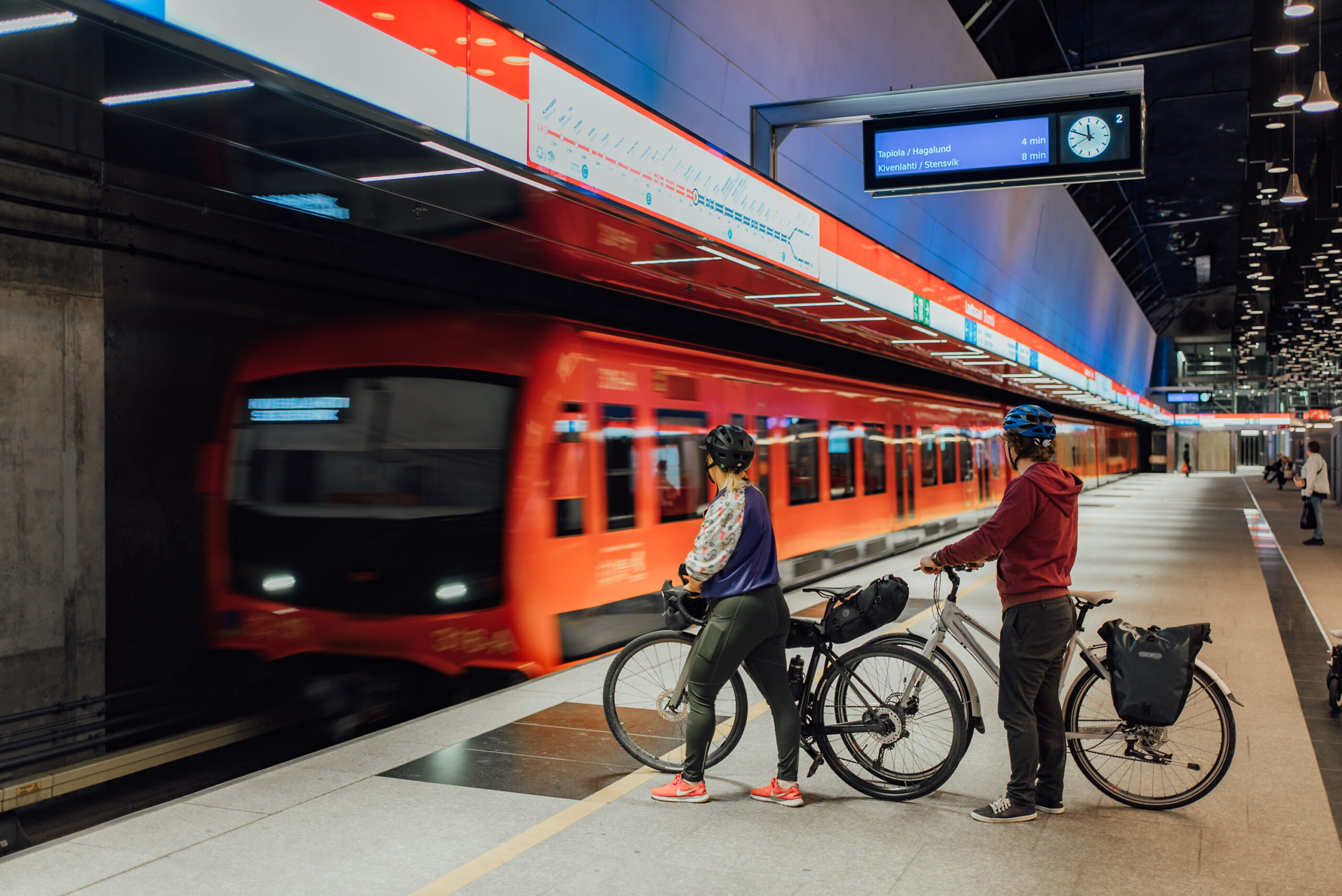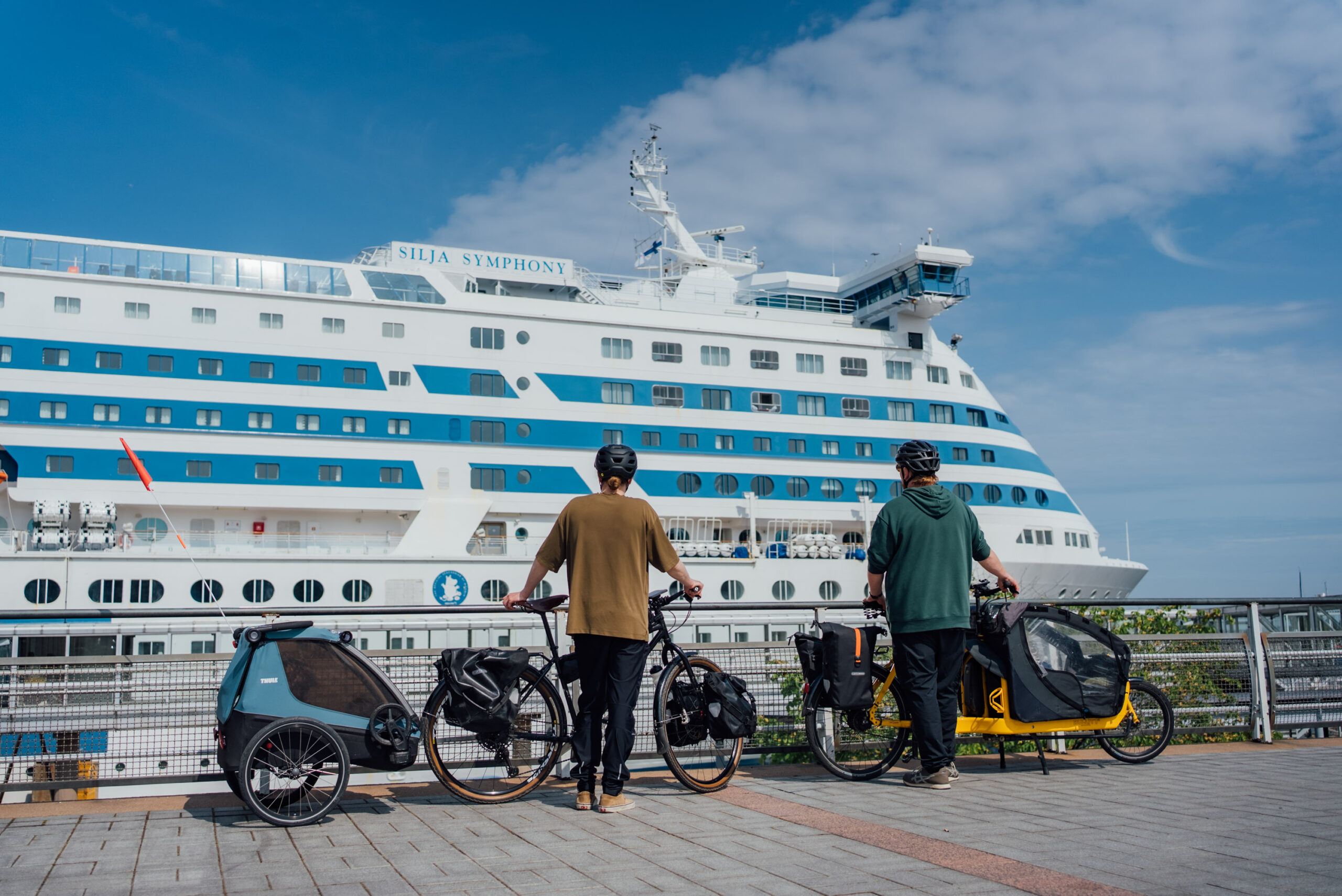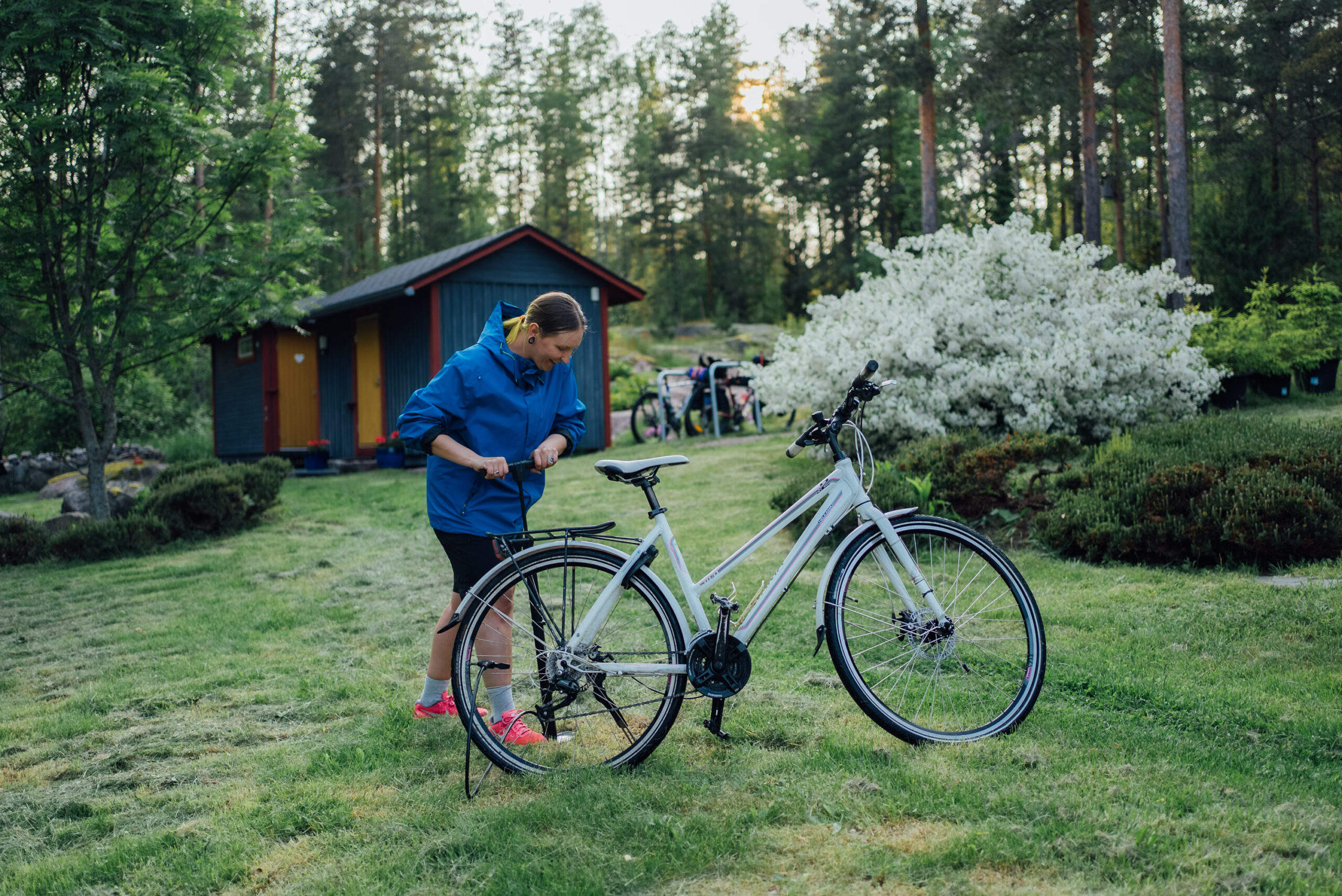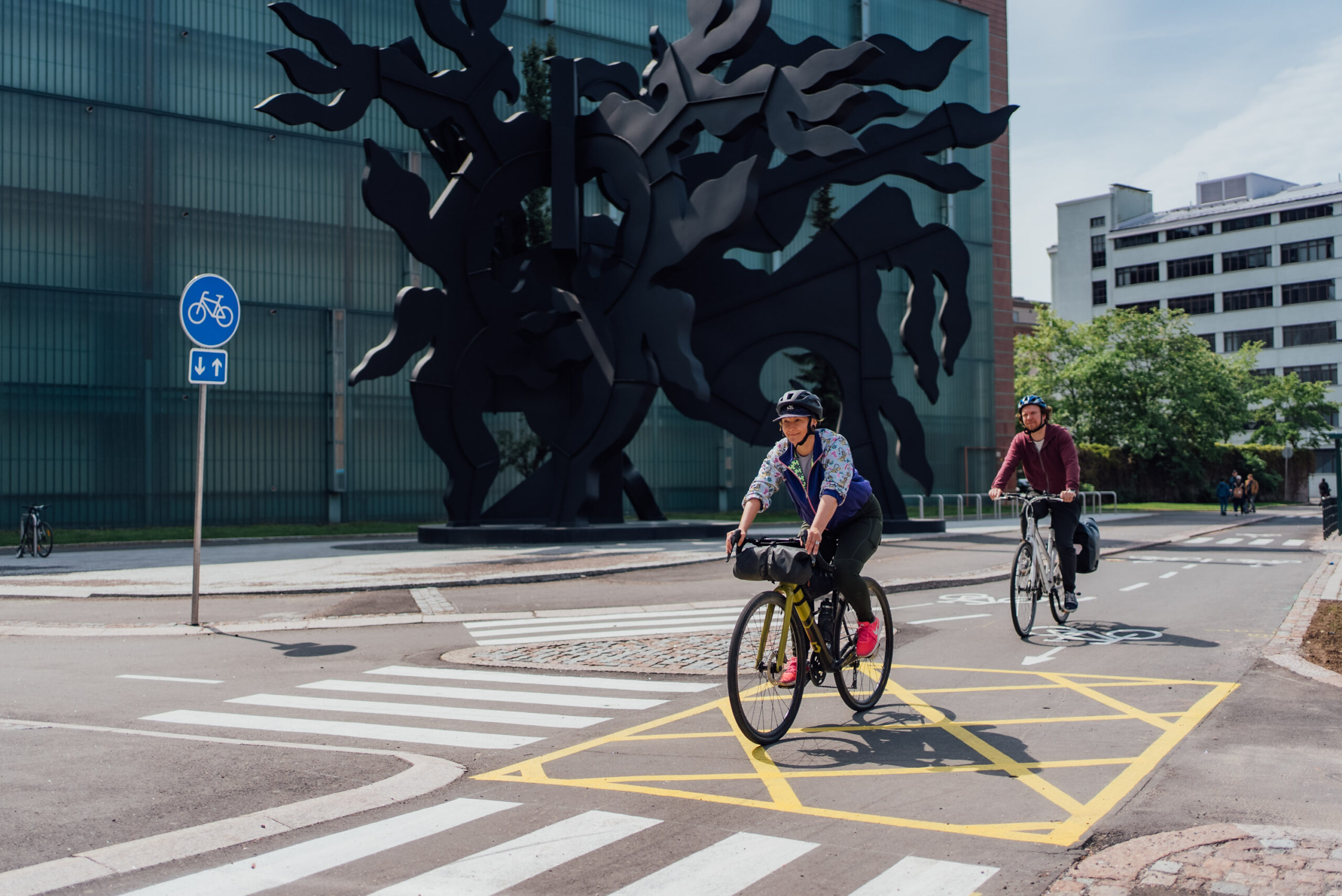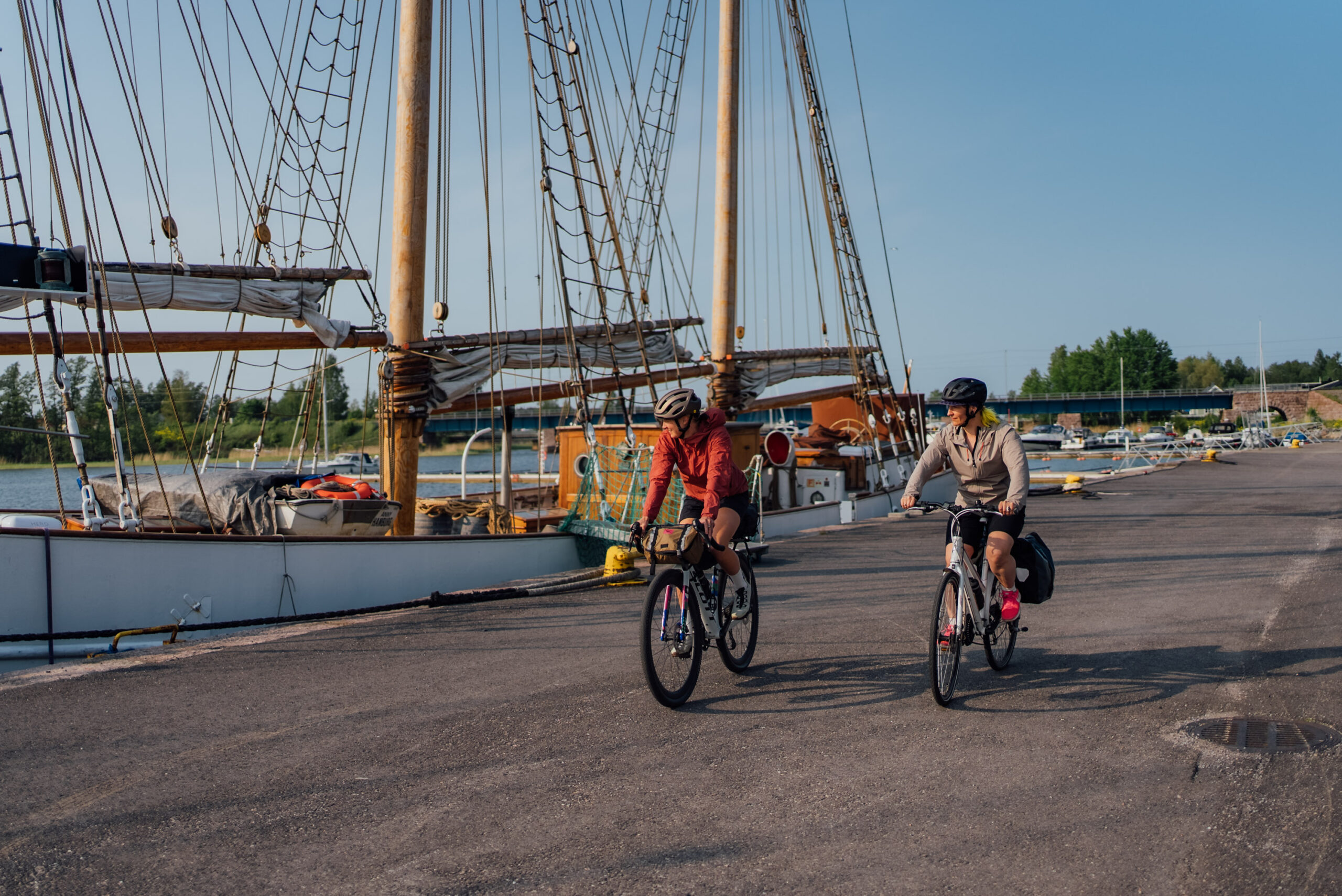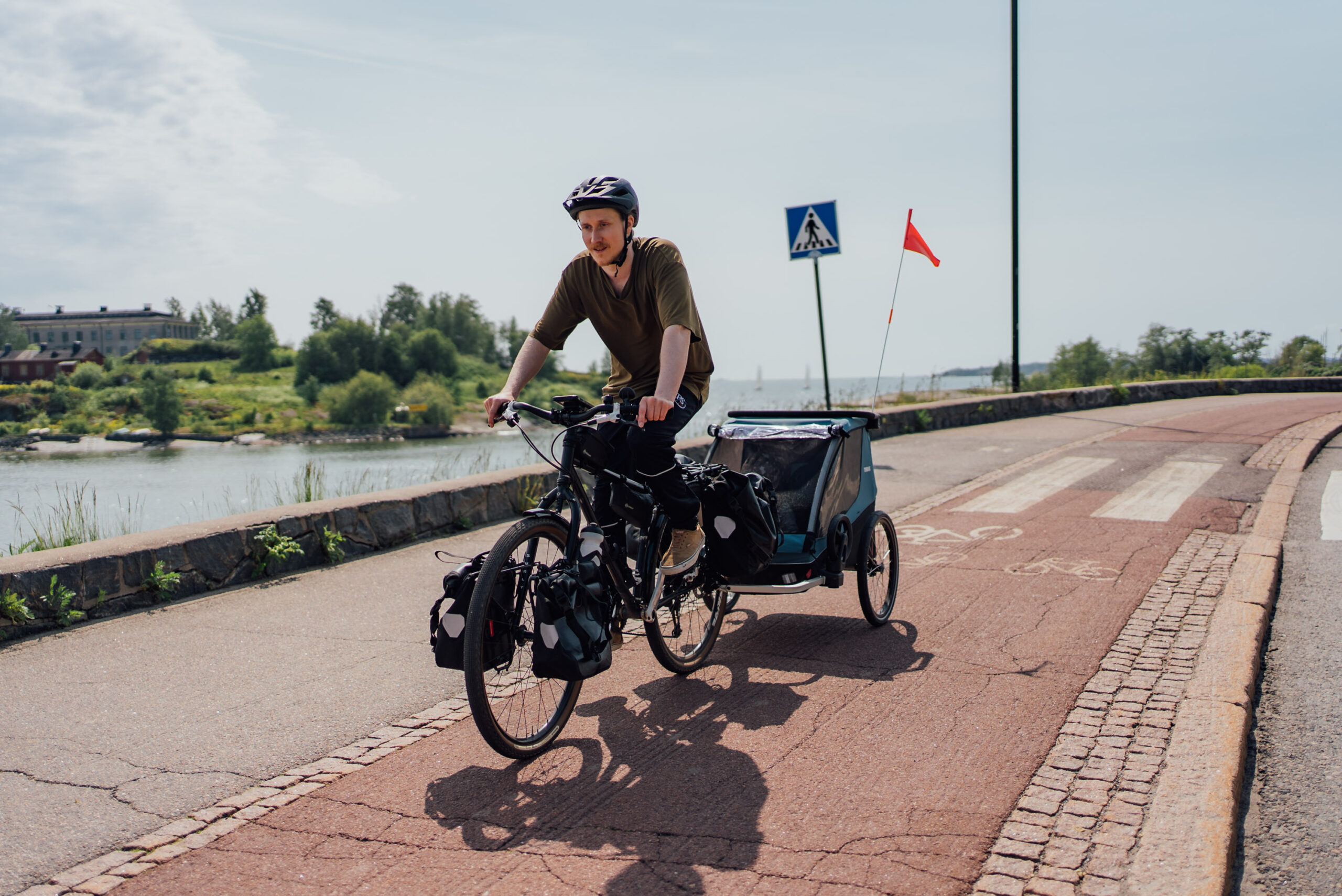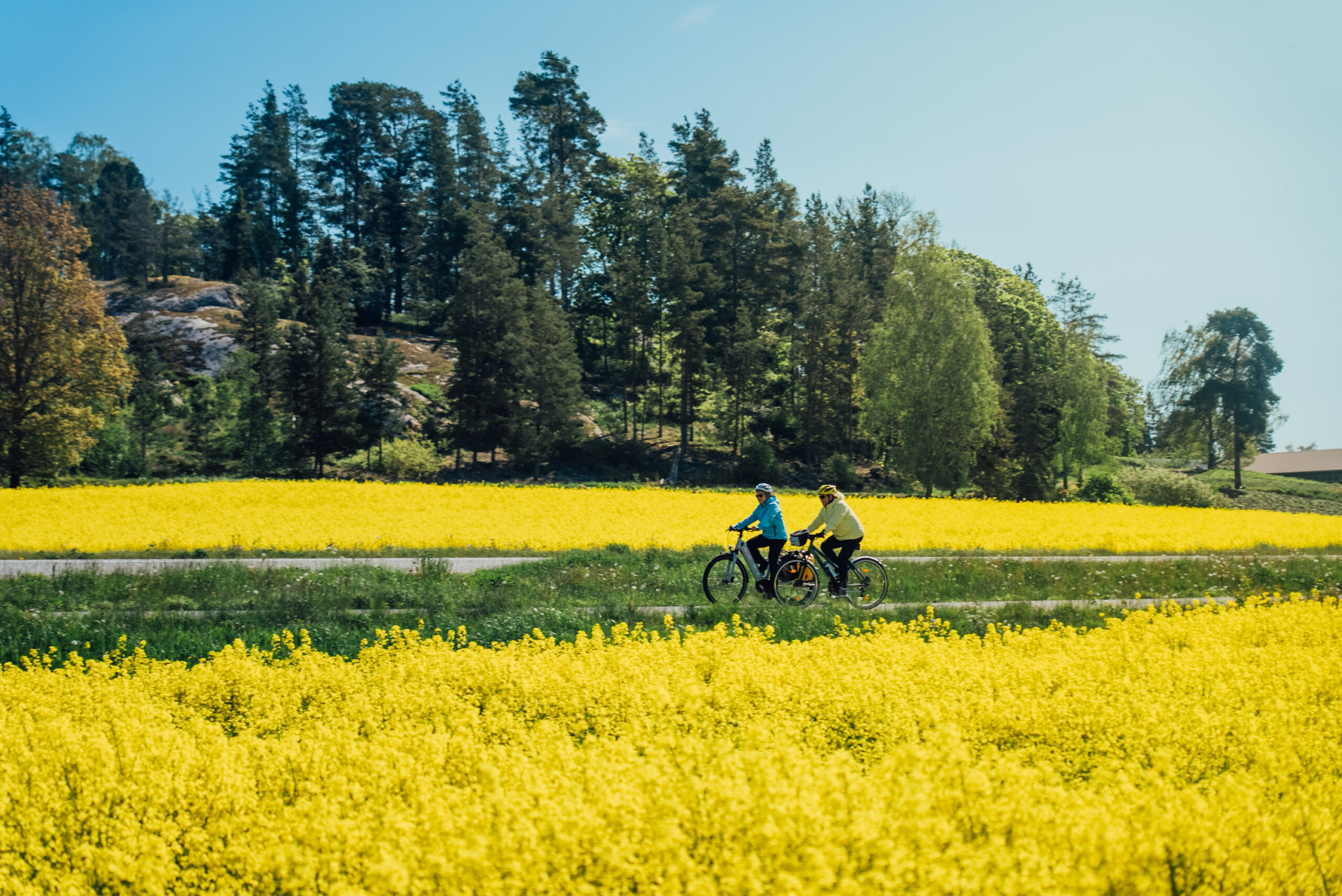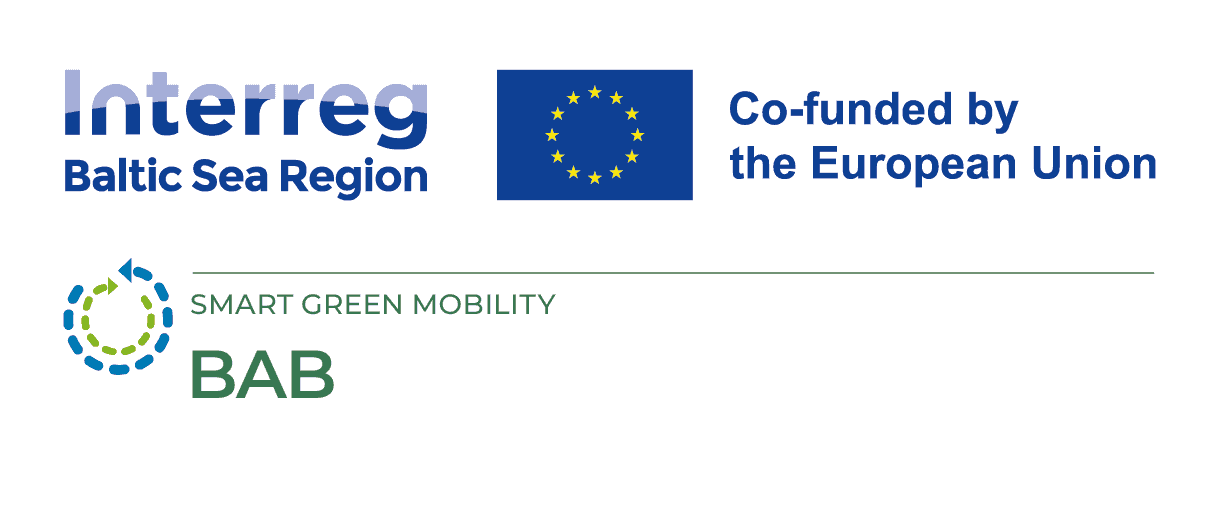
Bike Across the Baltic all wrapped up: Strengthening cycling tourism around the Baltic Sea
10 October 2025
The Bike Across the Baltic (BAB) project came to a close in August — leaving behind a stronger foundation for developing EuroVelo 10, the Baltic Sea Cycle Route. Over two years, partners and stakholders from Estonia, Finland, Poland, and Sweden worked together to raise the quality, visibility, and governance of one of Europe’s most ambitious long-distance cycling routes.
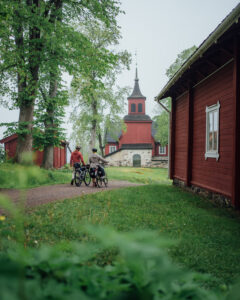
BAB staff at the Fagervik village in Inkoo, Finland.
Assessing and Improving the Route
At the heart of the project were on-the-ground route assessments and route description development. Using the European Certification Standard, partners inspected hundreds of kilometres of EuroVelo 10:
-
-
-
-
- In Sweden, 631 km south of Härnösand were surveyed.
- In Finland, the 255 km Turku–Helsinki section was reviewed in detail.
- In Estonia, 53 km daily section from Tallinn to Paldiski, including the key segments entering and exiting Tallinn.
- In Poland’s Pomorskie region, the coastal stretch was audited for signage, services, and continuity.
-
-
-
To make the route more appealing to cyclists, partners prepared descriptions of daily sections and marketing materials, highlighting sights and services interesting for cycling tourists, local scenery and history, and help position EuroVelo 10 as a product ready for both local and international visitors.
These inspections produced national recommendations to improve EuroVelo 10 sections from improving infrastructure and safety, such signage and surfacing to filling service gaps with cyclist friendly services, giving authorities and service providers a roadmap for future upgrades.
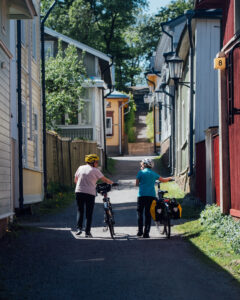
BAB staff assessing the EuroVelo 10 route in Naantali, Finland.
Increasing Capacities, Building Knowledge and Networks
Beyond infrastructure, BAB focused on strengthening cooperation. The project developed a benchmarking tool for cycle tourism, produced policy recommendations, and hosted peer learning workshops that brought together local and regional authorities, tourism boards, NGOs, and service providers.
Results were shared at major international events such as the Baltic Sea Tourism Forum in 2024, and in national meetings in the partner countries, helping to anchor the project’s work in local and international networks.
A Lasting Impact
By project’s end, BAB had delivered:
- Detailed route quality data to guide planning and investments.
- Practical tools and recommendations for cycling tourism governance.
- A strengthened network of stakeholders across four countries.
- Greater visibility for EuroVelo 10 through communication and outreach.
Check out the project solutions on the “Solutions” page.
While challenges remain — such as harmonising signage and ensuring route continuity — BAB has provided the evidence, partnerships, and tools needed for the next stage of development. PRoject partners will keep up the EuroVelo development in local initiatives and other projects targeting cycling tourisms. And hope to meet each other again in cycling tourism related events and project initiatives!
